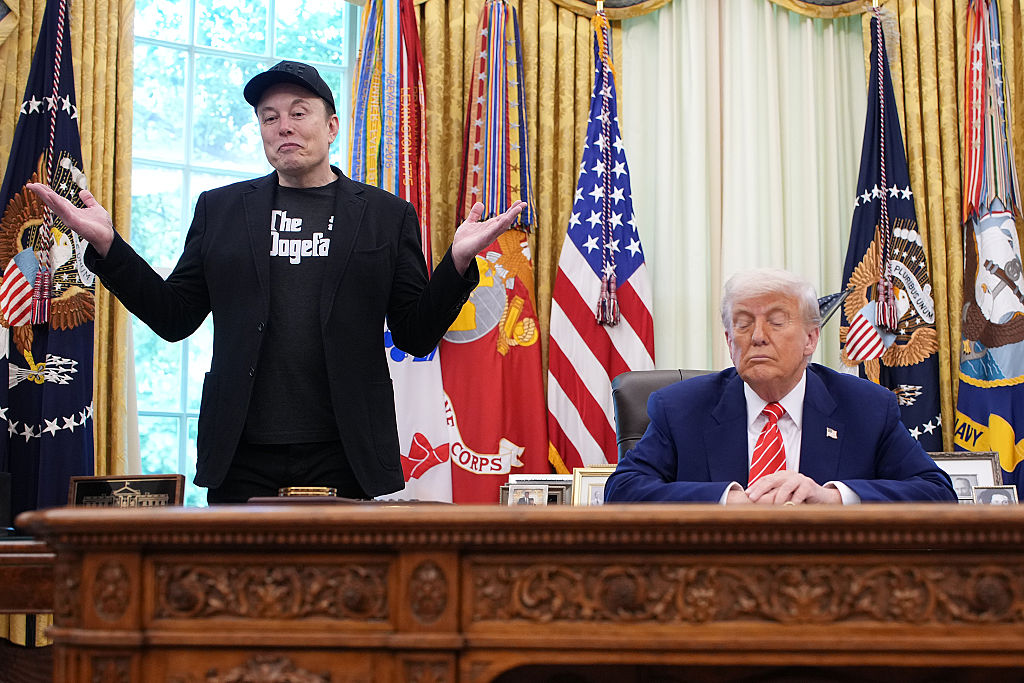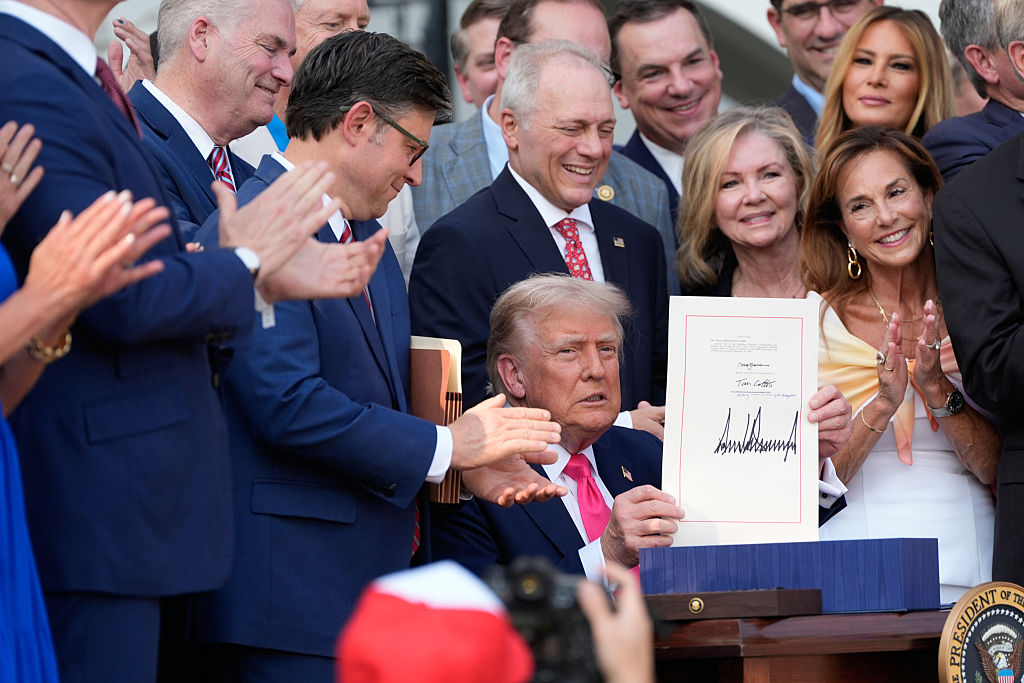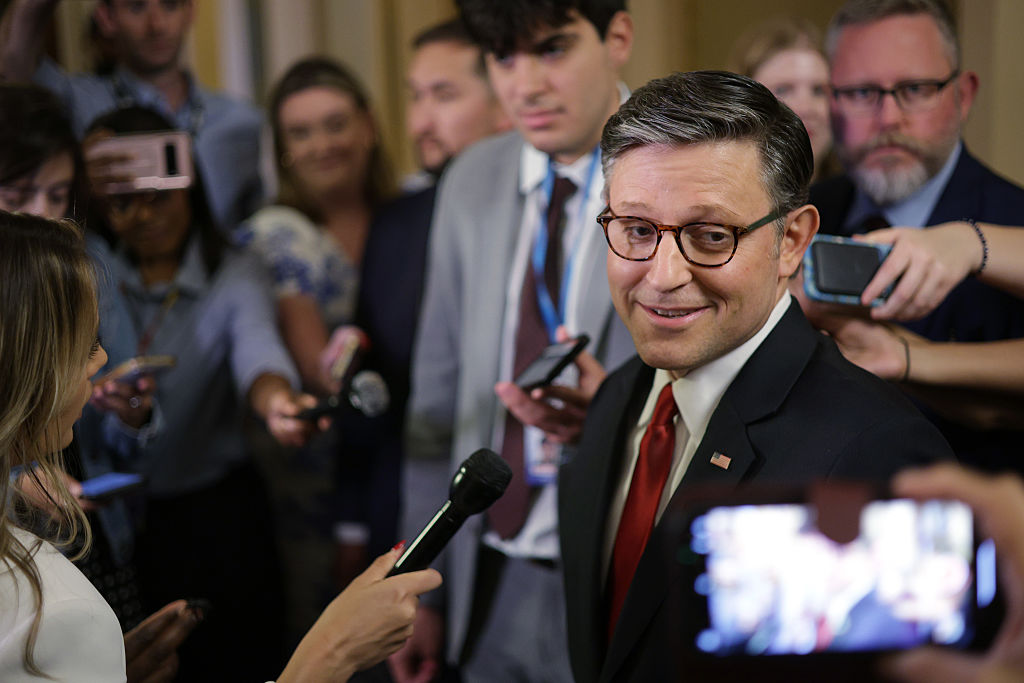Sometimes the true power of someone new to politics is that they don’t arrive in Washington with any of the preconceived notions about the possible. In a political moment that is decidedly post-norms, that’s what made Alabama senator Tommy Tuberville’s stance against an array of foes, including many on his own side of the aisle, so impressive.
Tuberville came to Washington as a cipher. He was a Republican, certainly, and a conservative endorsed by Donald Trump by dint of the failure of Jeff Sessions’s brief tenure as attorney general. But it was convenient to think of him as a former football coach who viewed being one of the hundred members of the United States Senate as a step down from the task of raising up some of the most talented athletes in the nation. Some public figures retire — others go to the Senate. But Tuberville had different designs.
In the instance of his battle with Joe Biden’s administration over its abortion policy, Tuberville showed the clarity of someone unfamiliar with the way things are done in Washington. He saw something blatantly unlawful, clearly unconstitutional and decided to make a big deal about it instead of just giving a pointless floor speech. He decided to penalize the very entity engaged in this unlawful behavior: the Pentagon, which apparently operates under the notion that it is immune to the basic requirements of law.
As his tool, Tuberville chose a power available to any senator — blocking the mass approval of hundreds of promotions from proceeding without objection through the Senate process. This was a bridge too far. It would require senators to actually vote on such approvals, chewing up much of their floor time, keeping them from flying around the world to conferences and fundraisers, and all the other things that, as aspects of doing their job, modern twenty-first century politicians believe are beneath them.
The stand received objections almost from the first instance among the most pro-Pentagon members of the Republican conference. But many veterans, officers and enlisted military members cared not a whit, knowing that we have a military that is absurdly top-heavy, and that preparedness was in no way damaged by Tuberville’s stand. The disruption to the normal process of doing things turned so frustrating for the White House, which refused in the initial months to even engage with the intransigent senator, that they and Senate Democrats were prepared to blow up the entire process rather than concede to Tuberville’s basic demands.
For a Biden administration that promised compromise and normalcy, this was one of numerous examples where they took the opposite path. They easily could have conceded that Tuberville was right — taxpayer funding for abortions for members of the military is unlawful — and instead come to an agreement that just granted leave to those women seeking abortions to travel to different states. But that would be an admission of some moral wrongness about abortion and the additional wrongness of using taxpayer dollars to fund such a morally divisive action — something that Joe Biden only maintained for the overwhelming majority of his career, and not yesterday.
This week, Tuberville finally had to draw back from the line, announcing he would keep his holds only for four-star promotions, releasing the hundreds below that level for the default affirmation of unanimous consent. But to say that this was a defeat ignores what Tuberville proved in his stance, showing the utility of a tactic available to senators but used by very few on the Republican side. He held the line on this policy for more than nine months with only the backing of Utah senator Mike Lee. He had to deal with the backstabbing of Senators Joni Ernst, Dan Sullivan and Lindsey Graham — darling of the Susan B. Anthony List for his own federal abortion bill which has no hope of passing any conceivable Senate — and the demagoguery of huge swathes of conservative media and pundits who left him stranded on an island on the issue.
The takeaway from Tuberville’s lonely fight is clear: if something like this can be done on similar appointments, using similar tactics, with the support of a larger portion of the conference, it could have an institution-altering effect. Senators are invested with enormous power within their body, but very few choose to use it as it can be used. They still swear by, at least on the Republican side, the old norms-based protocols that no one on the Democratic side respects. (As recently as 2020, Illinois senator Tammy Duckworth announced a hold on more than 1,100 Pentagon promotions to insist that Alexander Vindman get promoted.)
Tuberville just accepted the new rules and ran his offense accordingly.
The lesson for Republicans ought to be figuring out the next fight they can deploy along these lines. Imagine if Tuberville’s cause had been, not the hot button issue of abortion that sends GOP senators rushing away from the cameras, but something more consultants advise as critical to Republican messaging of the moment, such as border security? The tactic clearly screwed with the established order of things on Capitol Hill. And despite the nuclear threats of Majority Leader Chuck Schumer, that tactic isn’t a gimmick. It’s an old approach to a new problem, which uses the rules as written instead of the ones that only exist in the minds of norms-based Senate offices.


























Leave a Reply